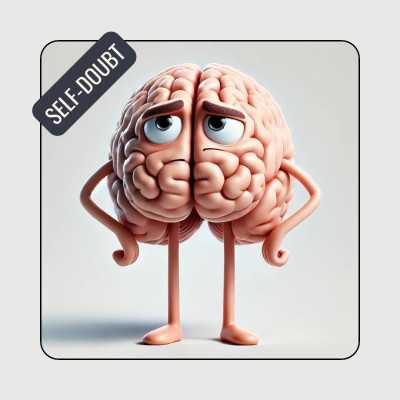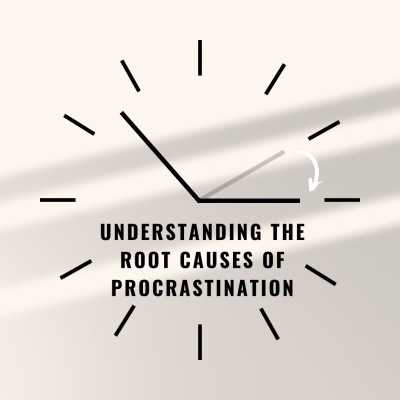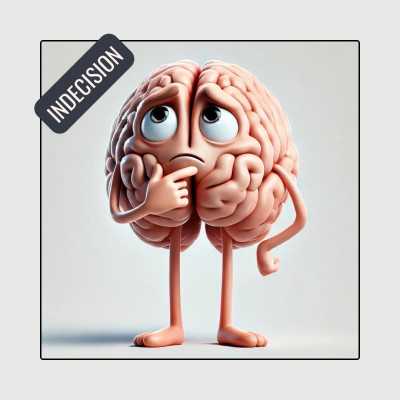The impact of praise and criticism in early childhood on self-esteem and internal dialogue in adults
Our childhood experiences shape much of who we are as adults, often in ways we don’t fully realize. The way we see ourselves, our abilities, and even how we talk to ourselves - our inner dialogue - are often influenced by the feedback we received growing up.
Two powerful forms of feedback during childhood, praise and criticism, play a major role in shaping our self-concept.
Understanding how early praise and criticism affect adult behavior can lead to greater self-awareness, helping us break free from limiting beliefs and build healthier self-esteem.
Understanding Self-Concept and Inner Dialogue
Before diving into the impact of praise and criticism, it’s important to define what we mean by „self-concept” and „inner dialogue”.
Self-concept is essentially the way we perceive ourselves. It encompasses our beliefs about our abilities, our personality, and our worth.
Are we confident, capable, lovable?
Or do we see ourselves as lacking, not good enough, or unworthy of love?
These beliefs, often formed in childhood, shape the way we navigate the world as adults.
Inner dialogue is the internal conversation we have with ourselves. It’s the voice in our head that comments on our experiences, decisions, and feelings.
For some, this inner voice can be nurturing and supportive. For others, it can be harsh and critical, mirroring the voices we heard during our formative years.
The Power of Praise: Building (or Breaking) Self-Esteem
Praise can be a double-edged sword. On one hand, positive reinforcement helps children develop a healthy sense of self-worth. When children receive genuine praise for their efforts, achievements, or character, they internalize the belief that they are capable and valued. But not all praise has the same impact.
The type of praise matters.
1. Effort-Based vs. Trait-Based Praise
Effort-based praise focuses on the process, like praising a child for working hard or showing perseverance. This kind of praise fosters a growth mindset, encouraging children to believe that they can improve and grow through effort.
As adults, those who received effort-based praise are more likely to tackle challenges with resilience, seeing failure as an opportunity to learn.
Trait-based praise, on the other hand, focuses on fixed attributes, like telling a child they are „so smart” or „naturally talented”. While it may seem positive, this can lead to a fixed mindset, where a person believes their abilities are set in stone.
Adults who received trait-based praise may feel intense pressure to maintain that label. They might avoid challenges out of fear that failure will prove they aren’t as smart or talented as they’ve been led to believe.
2. Overpraising and Unrealistic Expectations
While praise is important, too much of it - especially when it’s not tied to specific achievements or behaviors - can also be harmful. Children who are constantly told they are the best, smartest, or most special may develop a fragile sense of self-worth, one that crumbles when faced with real-world challenges.
As adults, they might struggle with self-doubt or constantly seek external validation, needing others to confirm their worth.
The Lasting Impact of Criticism: Shaping Inner Dialogue
Criticism, like praise, leaves a deep imprint on a child’s self-concept and inner dialogue. However, the effects of criticism are often more painful and long-lasting.
1. Constant Criticism and Self-Worth
When children grow up in environments where they are frequently criticized, they internalize that feedback. Constant criticism, whether for minor mistakes or simply for being themselves, can lead to feelings of inadequacy. These children may grow up to be adults who doubt their abilities, fear failure, and have a negative self-concept.
Adults who experienced frequent criticism often struggle with a harsh inner critic. This internal voice may echo the negativity they heard in childhood, telling them they’re not good enough, not smart enough, or not worthy of success or love. This kind of inner dialogue can be crippling, affecting not just self-esteem but also relationships, career choices, and overall happiness.
2. The Fear of Judgment and Perfectionism
Constant criticism can also lead to perfectionism. Adults who grew up with overly critical parents or caregivers often feel that they must be perfect to be accepted. They may avoid taking risks or trying new things, afraid that any failure will invite harsh judgment - not just from others, but from themselves.
This fear of judgment can limit opportunities for growth, both personally and professionally. It can also strain relationships, as perfectionists may expect others to meet the same impossible standards they hold for themselves, leading to frustration and conflict.
3. Constructive Criticism and Growth
Not all criticism is harmful. When delivered thoughtfully and with kindness, constructive criticism can help children and adults alike develop self-awareness and improve. The key difference is that constructive criticism focuses on behavior, not the person. It’s about offering feedback that helps someone grow without attacking their worth.
Adults who experienced constructive criticism in childhood are more likely to have a healthy inner dialogue. They understand that mistakes are a part of learning and don’t see failure as a reflection of their value as a person.
Healing from Harmful Praise and Criticism
The good news is that the effects of childhood praise and criticism aren’t set in stone. As adults, we have the ability to reshape our self-concept and inner dialogue through self-awareness and intentional practice.
Recognizing Patterns
The first step is recognizing how early praise and criticism have shaped your self-concept.
Do you find yourself needing external validation?
Are you overly critical of your efforts or abilities?
By identifying these patterns, you can begin to challenge them.
Reframing Inner Dialogue
If you notice that your inner dialogue is overly critical, try to reframe those thoughts. Instead of focusing on what you did wrong, focus on what you can learn from the experience.
Seeking Support
Sometimes, changing long-held beliefs about ourselves requires outside support. Whether through therapy, coaching, or supportive relationships, seeking help can make a big difference in shifting negative self-concepts and creating a healthier inner dialogue.
Moving Forward with Self-Compassion
Our childhood experiences with praise and criticism don’t have to define us forever. By understanding the impact of those early messages, we can take steps to rewrite our self-concept and cultivate a more supportive inner dialogue.
It’s never too late to learn to see ourselves with kindness, embrace our worth, and move forward with confidence. Self-awareness is the key to change. With patience and self-compassion, we can break free from limiting beliefs and create a more fulfilling, authentic life.






Leave a comment